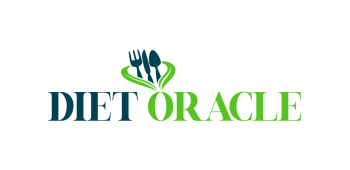What is Testosterone?
Testosterone is a steroid hormone primarily produced in the testicles of males and the ovaries of females, though in much smaller amounts. It is crucial for the development of male growth and masculine characteristics. Websites like PeakTRT.com provide extensive resources on how testosterone functions and its importance in the human body.
Functions of Testosterone in the Body
- Promotes muscle mass and strength
- Regulates libido and sexual function
- Influences mood and energy levels
- Supports bone density
These functions highlight the hormone’s pivotal role in maintaining various aspects of health and well-being.
Testosterone Production and Regulation
Testosterone levels are regulated by the hypothalamus and pituitary gland, which detect hormone levels and adjust production accordingly. Factors influencing production include age, health status, and lifestyle choices. Clinics like MensTclinic offer insights and treatments to manage testosterone levels effectively.
The Endocrine System Explained
Components of the Endocrine System
The endocrine system is a complex network of glands and organs that produce, store, and secrete hormones directly into the bloodstream. Key components include the pituitary gland, thyroid gland, adrenal glands, pancreas, and the reproductive organs (ovaries and testes).
How Hormones Are Produced
Hormones are biochemical substances produced by various glands throughout the body. Each gland synthesizes specific hormones that regulate critical functions, from metabolism to growth and reproduction. The process begins with a signal from the brain, typically from the hypothalamus or pituitary gland, which then directs other glands to produce and release hormones.
Interactions Between Different Hormones
Hormones interact in a highly coordinated manner to maintain homeostasis. For instance, the balance between insulin and glucagon regulates blood sugar levels, while interactions between estrogen and testosterone are crucial for reproductive health. Disruptions in these interactions can lead to significant health issues.
Effects of Testosterone Imbalance
Symptoms of Low Testosterone
Low testosterone can manifest in various ways, significantly impacting an individual’s quality of life. Common symptoms include fatigue, mood swings, decreased muscle mass, and reduced libido. It’s crucial for those experiencing such symptoms to consult healthcare providers for appropriate evaluation and potential treatment options.
Consequences of High Testosterone
Elevated testosterone levels can also pose health risks, including aggressive behaviors, acne, and an increased risk of developing certain types of cancers. Men with unusually high testosterone might experience complications such as sleep apnea or liver issues. Monitoring and managing these levels are essential to prevent long-term health consequences.
Long-Term Health Implications
Both high and low testosterone levels can lead to serious health issues if not addressed. Long-term effects of imbalanced testosterone include osteoporosis, cardiovascular diseases, and metabolic syndrome. Organizations like TRT Nation and Huddle Men’s Health provide resources and support for those dealing with hormone imbalances, emphasizing the importance of maintaining hormonal health through various therapeutic approaches.
Factors Influencing Testosterone Levels
Various factors can influence testosterone levels in the body, impacting overall health and well-being. Understanding these factors can help in managing and potentially improving testosterone balance.
Genetic Factors
- Genetic predisposition plays a significant role in determining testosterone levels. Variations in specific genes related to hormone production can lead to differences in testosterone levels among individuals.
- Family history of hormonal imbalances might also indicate a higher risk of similar issues.
Lifestyle and Environmental Influences
- Diet and nutrition are crucial; for instance, consuming enough zinc and vitamin D can support testosterone production.
- Physical activity levels significantly affect hormone levels. Regular exercise, particularly strength training, has been shown to boost testosterone.
- Environmental factors such as exposure to endocrine-disrupting chemicals can negatively impact testosterone levels.
Age-Related Changes in Testosterone
- Testosterone levels naturally decline with age, a condition often referred to as late-onset hypogonadism.
- The rate of decline can vary widely among individuals, influenced by both genetic and lifestyle factors.
Diagnosing Testosterone Imbalance
Clinical Methods for Assessing Hormone Levels
Various clinical methods are employed to assess hormone levels accurately. Blood tests are the most common, providing a direct measure of hormone concentrations in the bloodstream. Saliva and urine tests are also used to gauge hormone fluctuations over time.
Interpreting Test Results
Interpreting hormone levels requires understanding the normal ranges that vary by age and sex. Endocrinologists consider factors like time of day and overall health when evaluating results. It’s crucial to compare these results with symptoms and medical history for a comprehensive assessment.
When to Seek Medical Advice
It is advisable to seek medical advice if symptoms of hormone imbalance appear, such as fatigue, mood swings, or changes in sexual function. Early consultation can prevent potential complications. Resources like MensHealth.Com provide guidance on when to consult healthcare professionals.
Treatment Options for Testosterone Imbalance
When addressing testosterone imbalance, several treatment options are available, each tailored to the individual’s specific needs and medical history.
Hormone Replacement Therapy
Hormone Replacement Therapy (HRT) is often considered for those with significantly low testosterone levels. This treatment involves administering testosterone through injections, patches, gels, or pellets to normalize hormone levels. The goal is to alleviate symptoms associated with low testosterone and improve overall quality of life.
Natural Remedies and Supplements
Many individuals seek natural remedies and supplements as a first line of defense against hormonal imbalances. Common supplements include:
- Vitamin D
- Zinc
- Magnesium
- Ashwagandha
These are thought to aid in naturally boosting testosterone levels. However, it’s crucial to consult with a healthcare provider before starting any supplement regimen.
Lifestyle Modifications for Hormonal Balance
Lifestyle changes can significantly impact hormone levels. Key modifications include:
- Regular physical activity
- Maintaining a healthy weight
- Reducing stress through mindfulness or yoga
- Ensuring adequate sleep
These practices not only support hormonal balance but also contribute to overall health and well-being.
Preventive Measures and Healthy Practices
Maintaining optimal testosterone levels involves a combination of dietary, exercise, and stress management strategies. These practices not only support hormonal balance but also enhance overall health.
Dietary Considerations for Hormonal Health
A balanced diet rich in nutrients is crucial for maintaining hormonal health. Key components should include:
- Lean proteins to support hormone production.
- Healthy fats, such as omega-3 fatty acids, which can help regulate hormone levels.
- Fruits and vegetables high in antioxidants, which protect the body and the endocrine system from oxidative stress.
Exercise and Testosterone Levels
Regular physical activity is essential for maintaining healthy testosterone levels. It is recommended to:
- Engage in strength training exercises, which have been shown to boost testosterone production.
- Include cardiovascular exercises to improve overall health and hormonal balance.
- Avoid overtraining, as excessive physical stress can lead to hormonal imbalances.
Stress Management and Its Effects on Hormones
Effective stress management is vital in maintaining hormonal balance. Techniques include:
- Mindfulness and meditation to reduce mental stress.
- Adequate sleep, which is critical for hormone production.
- Regular relaxation practices, such as yoga or deep-breathing exercises, to maintain a calm and balanced nervous system.
For more detailed information on how to implement these practices, resources such as Wikipedia can provide a good starting point for research.

